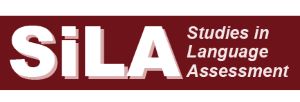A culturally sustaining and valid Alaska Native Language (Yugtun) assessment for school children
Rosalie Grant, University of Wisconsin-Madison, Gayle Arnaqulluk Miller, Yup'ik Curriculum Design & Gary Cook, University of Wisconsin-Madison
|
https://doi.org/10.58379/LRBE1549
|
Volume 12, Issue 2, 2023
|
Abstract: Assessment tool development which includes the learning of Alaska Native languages by school children in Alaska is limited. A situation shared with First Nations internationally. Even rarer is the development of such tools which include the wishes and aspirations of the children’s communities. The Yupiit Piciryaraitnek Qaneryaranek-llu Cuqyun (aka, Yup’ik Culture and Language Measurement) is being developed by expert Yup’ik native language teachers for kindergarten to Grade 6 students in the Lower Kuskokwim School District, Alaska. The assessment is administered in the Yugtun language. After previous attempts at developing assessment tools had excluded key Yup’ik cultural and Yugtun language features, school district officials and a group of Yup’ik expert native language teachers – the Yup’ik Expert Group (YEG) – decided that they needed to develop their own Yugtun language assessment infused with Yup’ik culture. The district officials then sought the assistance of language assessment researchers at the University of Wisconsin-Madison to ensure that the assessment would be regarded as high quality, valued not only by Yup’ik community members, and also met U.S. and State governments’ requirements for funding. Community-based, participatory and collaborative research principles and practices are being used to support co-designed development of a linguistically and culturally sustaining assessment.
This paper provides a project overview and focusses on the Yup’ik Cultural Awareness subtest, a foundational component of the assessment. The assessment project is the first of its kind in Alaska and significant for including community aspirations in a recognized, high quality assessment tool, thereby supporting teachers’ efforts and the achievements of school children learning their community language.
This paper provides a project overview and focusses on the Yup’ik Cultural Awareness subtest, a foundational component of the assessment. The assessment project is the first of its kind in Alaska and significant for including community aspirations in a recognized, high quality assessment tool, thereby supporting teachers’ efforts and the achievements of school children learning their community language.
Key words: co-design, language assessment, culture assessment, Alaska Native languages, Yup’ik culture
